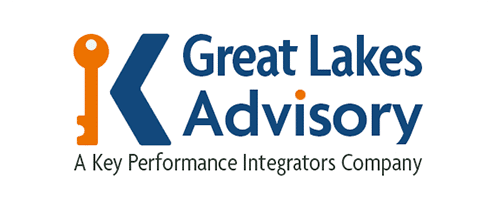Are you ready to take your digital marketing agency to the next level? Scaling your business can be challenging, but with the right strategies in place, it is possible to achieve long-term success. In this guide, we will share five proven strategies that you can use to scale your digital marketing agency, including specializing in a niche, expanding your services, automating processes, hiring top talent, and leveraging automation technologies. Follow these strategies, and you’ll be well on your way to growing your business and achieving your goals!
Here are five proven strategies that you can use when scaling your digital marketing agency:
Specialize in a niche
Specializing in a niche can have several benefits for a digital agency regarding sales, marketing, and operations.
One of the main benefits of specializing in a niche is that it allows the agency to become an expert in a specific area. This can be particularly valuable when it comes to sales, as it allows the agency better to understand the needs and challenges of its target market and tailor its services accordingly. It also makes it easier to position the agency as a trusted and authoritative source within the industry, which can be a key factor in attracting new clients.
In terms of marketing, specializing in a niche allows the agency to focus on a specific target audience, which can be more effective and efficient than trying to appeal to a broad audience. It also allows the agency to tailor its marketing messages and content to its target market’s specific needs and interests, which can be more effective in generating leads and conversions.
In terms of operations, specializing in a niche can also help to streamline and optimize processes, as the agency is able to focus on a specific set of services and solutions. This can help to reduce complexity and increase efficiency, which can be particularly important when scaling the business.
Overall, specializing in a niche can help a digital agency to better understand and serve its target market, position itself as a trusted and authoritative source, and streamline and optimize its operations, all of which can be crucial in driving growth and success.
Focusing on a specific niche or industry can help you stand out from the competition and attract more high-quality leads. By specializing in a niche, you can position yourself as an expert in that field and build a reputation for delivering excellent results. Specializing in a niche also allows you to tailor your marketing and sales efforts to your target audience’s specific needs and pain points.
There are several factors to consider when deciding whether or not to specialize in a niche as a digital agency:
- Market demand: Is there a strong demand for the services you are considering specializing in? If there is a high demand for these services within your target market, specializing in that niche may be a good decision.
- Expertise: Do you have a deep understanding of the needs and challenges faced by companies in your target niche? Specializing in a niche requires a high level of expertise and understanding of the unique needs of your clients.
- Competitiveness: Is the market for the services you are considering specializing in highly competitive? If the market is crowded with competitors, it may be more challenging to differentiate your agency and stand out.
- Passion: Are you passionate about working with companies in your target niche? Specializing in a niche can be very rewarding, but it also requires a high level of dedication and commitment. Make sure you are truly passionate about the work you will be doing.
Ultimately, whether or not to specialize in a niche will depend on your individual business goals and circumstances. Carefully consider the above factors to determine if specializing in a niche is the right decision for your digital agency.
Expand your services
Expanding your services can help digital agencies scale in several ways. First, it can increase the number of potential clients and revenue streams. By offering a wider range of services, you can appeal to a larger customer base and potentially attract new clients who may be interested in your other services.
Second, expanding your services can help to diversify your revenue streams, which can be beneficial in times of economic uncertainty or industry disruption. By offering a range of services, you can potentially reduce your dependence on any one particular service or client and increase your overall stability.
Third, expanding your services can help you to differentiate your agency from competitors and establish yourself as a one-stop shop for all of your client’s digital needs. This can be especially appealing to small businesses that may not have the resources to work with multiple vendors or agencies.
Finally, expanding your services can help increase your operations’ efficiency and effectiveness. By offering a wider range of services, you can leverage your existing resources and expertise across multiple areas, which can help increase your overall productivity and profitability.
Offering a range of services, such as SEO, PPC, social media marketing, and content marketing, can help you appeal to a broader range of clients and increase revenue. Expanding your services can also help you capture a larger market share and diversify your revenue streams. However, it’s important to carefully assess which services to add and ensure that you have the necessary resources, expertise, and capacity to deliver them effectively.
There are certain areas that are likely to continue to be popular in the coming years, such as:
E-commerce: The shift towards online shopping is expected to continue in the coming years, with many businesses seeking to establish or expand their online presence. Digital agencies that specialize in e-commerce can help businesses create and optimize their online stores, as well as develop marketing campaigns to drive traffic and sales.
Digital agencies can offer a range of services to help e-commerce businesses succeed online. Some of the services that digital agencies can offer for e-commerce include:
Website design and development: A well-designed website is crucial for e-commerce businesses. Digital agencies can help create a professional and user-friendly website that showcases products and encourages sales.
Search engine optimization (SEO): SEO is important for e-commerce businesses because it helps improve the visibility of their website in search engine results, which can lead to more traffic and sales. Digital agencies can help optimize website content and structure to improve SEO.
Paid advertising: Digital agencies can help e-commerce businesses create and manage paid advertising campaigns to reach a wider audience and drive traffic to their website. This can include campaigns on platforms like Google AdWords or social media advertising.
Email marketing: Email marketing can be an effective way to keep in touch with customers and promote new products or sales. Digital agencies can help e-commerce businesses create and send newsletters and other email campaigns.
Social media marketing: Social media can be a powerful tool for e-commerce businesses to connect with customers and promote their products. Digital agencies can help manage social media accounts, create content, and run social media advertising campaigns.
To begin offering these services to e-commerce businesses, digital agencies can start by identifying their areas of expertise and building a strong portfolio of work. They can also research the needs and challenges of e-commerce businesses in their target market and tailor their services accordingly. By building relationships with e-commerce clients and delivering high-quality work, digital agencies can establish themselves as trusted partners in the e-commerce space.
Social media marketing: As social media usage continues to grow, businesses will continue to rely on digital agencies to help them create and execute social media marketing campaigns. Agencies specializing in this area can help businesses build their brand, engage with customers, and drive traffic and sales through social media channels.
Search engine optimization (SEO): With the increasing importance of online search for businesses, SEO is likely to remain a key focus for digital agencies in the coming years. Agencies that specialize in SEO can help businesses improve their search engine rankings, drive traffic to their websites, and increase leads and sales.
Content marketing: As businesses continue to focus on creating high-quality, engaging content to attract and retain customers, digital agencies specializing in content marketing will be in high demand. These agencies can help businesses create and distribute content that resonates with their target audience and develop and execute content marketing campaigns.
Mobile marketing: With the increasing use of smartphones and tablets, mobile marketing will likely continue to be a key focus for digital agencies in the coming years. Agencies specializing in this area can help businesses create mobile-friendly websites and apps and develop mobile marketing campaigns to reach and engage with customers.
Invest in automation
Implementing automation technologies can help you streamline and optimize your operations, freeing up time and resources that can be reinvested in growth. Automation tools such as marketing automation software, chatbots, and project management software can help you automate routine tasks, improve efficiency, and reduce errors. However, it’s important to carefully evaluate which tasks are suitable for automation and to ensure that you have the necessary resources and infrastructure in place to support it.
There are several automation technologies that digital agencies can use to streamline and optimize their operations and services. Some examples include:
- Project management software: This software helps agencies track and manage tasks, deadlines, and resources across multiple projects. It can also help with collaboration and communication among team members.
- Marketing automation software: This software helps agencies automate marketing tasks such as email campaigns, social media posts, and customer segmentation. It can save time and improve efficiency while also providing valuable insights and data.
- Customer relationship management (CRM) software: This type of software helps agencies to manage and track customer interactions and data. It can help with lead generation, customer segmentation, and sales forecasting.
- Document management software: This type of software helps agencies to organize, store, and share documents electronically. It can improve collaboration and reduce the risk of errors or lost documents.
To set up these automations, it’s important to identify your agency’s specific needs and goals and choose the software that best fits your needs. It’s also important to properly train your team on how to use the software and establish clear processes for using it. By implementing automation technologies, digital agencies can improve efficiency, reduce errors, and better serve their clients.
At Great Lakes Advisory, we walk the talk. Want to learn more? Schedule a free complimentary consultation today.
Hire and train top talent
Attracting and retaining top talent can help you scale your business and deliver high-quality services to your clients. Invest in employee training and development to ensure that your team is equipped with the skills and knowledge needed to succeed. This may involve providing in-house training, sponsoring industry conferences and events, or offering ongoing learning opportunities. Building a positive company culture and providing competitive benefits can also help you attract and retain top talent.
The top grading framework is a recruitment and selection process that is designed to identify the top performers in a given field or industry. It involves a thorough and structured evaluation of candidates based on their skills, knowledge, experience, and potential for success.
The benefits of using the top grading framework include:
- Increased productivity: By hiring top performers, you can expect higher levels of productivity and performance from your team.
- Improved retention: Top performers are more likely to stay with the organization for longer periods of time, reducing the need for costly turnover and training.
- Enhanced company culture: Top performers tend to be more positive, proactive, and engaged, which can help to create a more positive and productive work environment.
To use the top grading framework, you should follow these steps:
- Identify the specific skills, knowledge, and experience that are required for the role.
- Develop a structured evaluation process, which may include interviews, skills assessments, and reference checks.
- Evaluate candidates based on their fit with the role and the organization.
- Choose the top candidates based on their overall fit and potential for success.
Additionally, personality tests can be a useful tool in the hiring and recruiting process, as they can help to provide insight into a candidate’s strengths, weaknesses, values, and communication style. However, it is important to use these tests effectively and in combination with other assessment methods to understand a candidate’s fit for the role.
Here are some tips for effectively using personality tests in hiring and recruiting:
- Use the right test: There are many different personality tests available, so choosing one that aligns with your needs and goals is important. Consider what you want to learn about the candidate and select a test that measures those traits.
- Administer the test correctly: Follow the test’s guidelines for administering and interpreting the results. Make sure to provide clear instructions and allow enough time for the candidate to complete the test.
- Use the results as one piece of the puzzle: Personality tests should not be used in isolation to make hiring decisions. Instead, they should be used as one piece of the puzzle in combination with other assessment methods such as resume reviews, interviews, and reference checks.
- Consider the limitations: Personality tests have their limitations and may not accurately capture all aspects of a person’s personality. It’s important to consider the results in the context of the candidate’s overall fit for the role and the organization’s needs.
By following this framework, you can effectively identify and hire top talent for your organization, which can help to drive business success and growth.
Partner with complementary businesses
Partnering with complementary businesses, such as design agencies or web development firms, can help you expand your services and reach new customers. By forming strategic partnerships, you can offer your clients a broader range of services and tap into new markets. It’s important to carefully assess potential partners and ensure that the partnership aligns with your business goals and values.
In conclusion, scaling a digital marketing agency is a complex process that requires careful planning and execution. By following the strategies outlined in this guide, you can increase your chances of success and achieve long-term growth for your business. Specializing in a niche, expanding your services, automating processes, hiring top talent, and leveraging automation technologies can all be effective strategies for scaling your digital marketing agency.
Remember, scaling your business is not a one-time event – it is a continuous process that requires ongoing effort and attention. Keep track of your progress, identify areas for improvement, and be open to trying new strategies as your business evolves. You can achieve your goals and take your digital marketing agency to new heights with hard work and dedication.
Are you ready to get started on scaling your digital marketing agency? Take the first step today by implementing one or more of the strategies outlined in this guide. Whether you specialize in a niche, expand your services, automate processes, hire top talent, or leverage automation technologies, the key is to take action and start making progress toward your goals. With the right strategies in place, you can successfully scale your business and achieve long-term success.
Want to learn more? Schedule your free consultation today!



